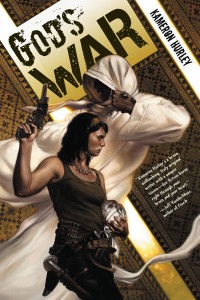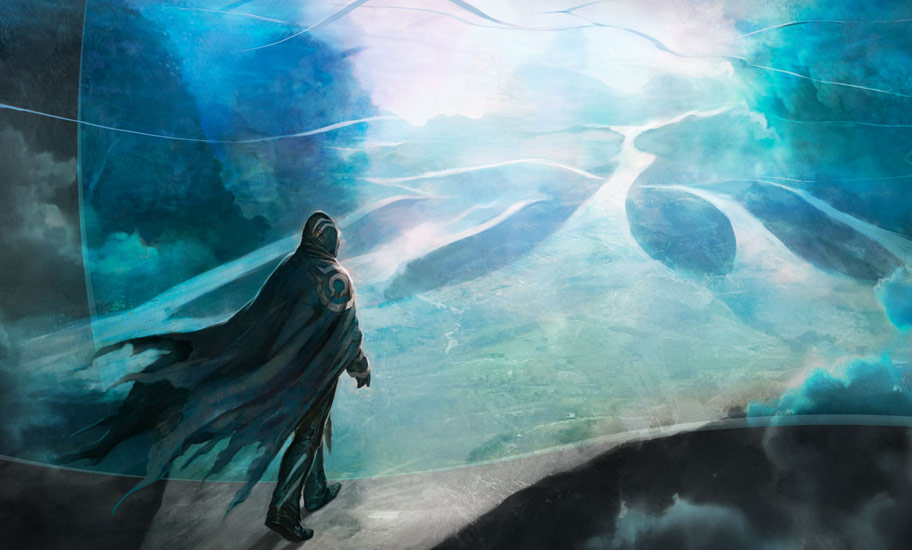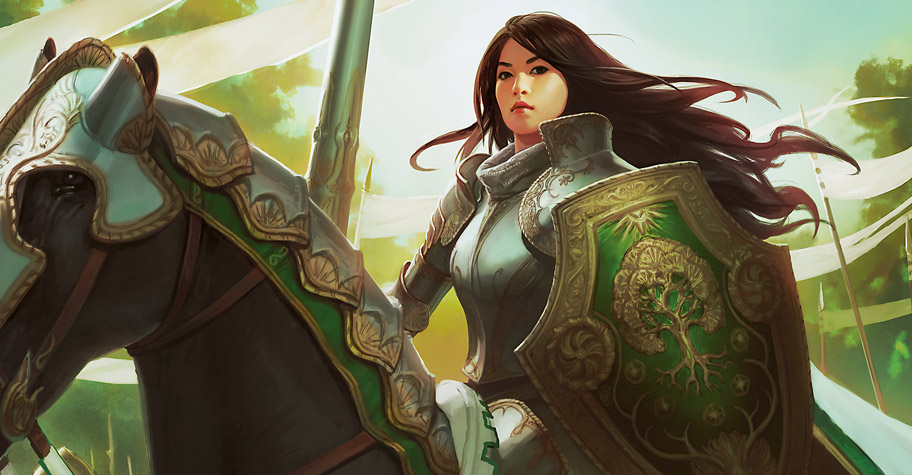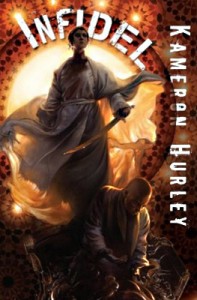Yesterday, Angry Robot Books announced the Worldbreaker Saga, a new fantasy/science fiction trilogy from Kameron Hurley (remember her?). “The Mirror Empire will be published worldwide in September this year, with the sequel to follow a year later,” explains Angry Robot.
Surprising to note, The Mirror Empire is set to release this September, a very quick turnaround in the world of traditional publishing, and sure to set some readers to shuffling around their fall reading list. It’s instantly become one of my most anticipated novels of 2014.
Hurley’s best known for her Bel Dame Apocrypha, a slim trilogy (by genre standards) about the bounty hunter Nyx, which Dan Hartland of Strange Horizons described as, “like a live grenade, lobbed with abandon and not a little mischief.” So, I was rightfully surprised when she described The Mirror Empire to me. “This is Game of Thrones meets Fringe,” she said. “Across three respectable doorstoppers.”
Along with the announcement, we also have an early synopsis:
On the eve of a recurring catastrophic event known to extinguish nations and reshape continents, a troubled orphan evades death and slavery to uncover her own bloody past… while a world goes to war with itself.
In the frozen kingdom of Saiduan, invaders from another realm are decimating whole cities, leaving behind nothing but ash and ruin. At the heart of this war lie the pacifistic Dhai people, once enslaved by the Saiduan and now courted by their former masters to provide aid against the encroaching enemy.
Stretching from desolate tundra to steamy, semi-tropical climes seething with sentient plant life, this is an epic tale of blood mages and mercenaries, emperors and priestly assassins who must unite to save a world on the brink of collapse. As the dark star of the cataclysm rises, an illegitimate ruler struggles to unite a country fractured by civil war; a precocious young fighter is asked to betray his family to save his skin; and a half-Dhai general must choose between the eradication of her father’s people or loyalty to her alien Empress.
Through tense alliances and devastating betrayals, the Dhai and their allies attempt to hold against a seemingly unstoppable force as enemy nations prepare for a coming together of worlds as old as the universe itself.
In the end, only one world will rise – and many will perish.
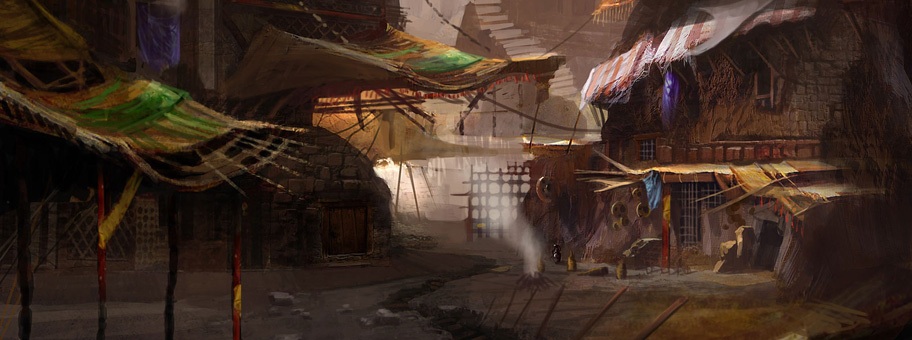
Art by Jung Park
I caught up with Hurley to chat about the new deal an what to expect of her new trilogy. “his book has been a long time coming,” she said. “It’s one of those projects that brews at the back of your brain for nearly twenty years, waiting for you to achieve the skill you need to actually pull it off.”
Hurley’s first trilogy has been a huge critical success (most recently, God’s War was nominated for a BSFA), but she wasn’t ready to return to that world for novel-length material, so began this new project.
“After I finished my God’s War trilogy, I needed a break from writing a world mired in apocalyptic war… so of course I sat down and wrote The Mirror Empire, which is about a world at the brink of apocalyptic war with multiple worlds. Because one world at war just isn’t, you know, enough for me. It’s the most intricate and complex book I’ve ever written, and I had a lot of help along the way, in particular from my agent, Hannah Bowman, who has a very keen sense for how to thread together multiple plot lines over multiple worlds and… well… a lot of multiple things, as folks will note pretty early on.”
“I’m pretty jazzed to see what folks think of it.”
